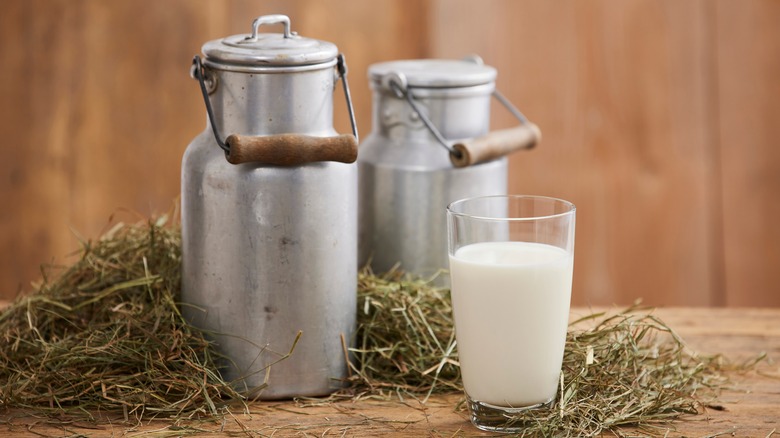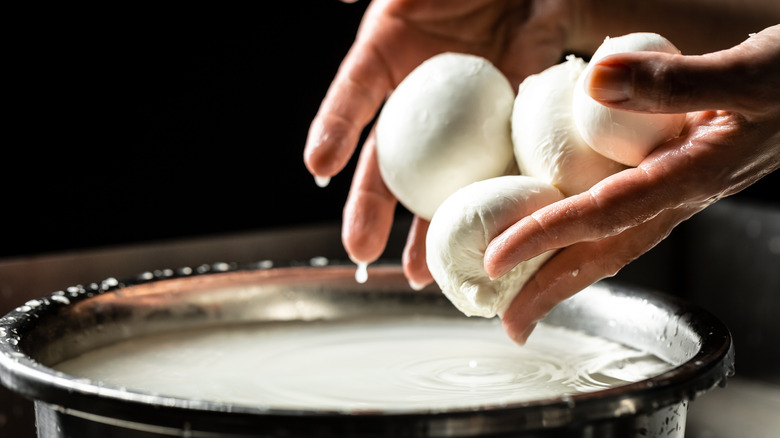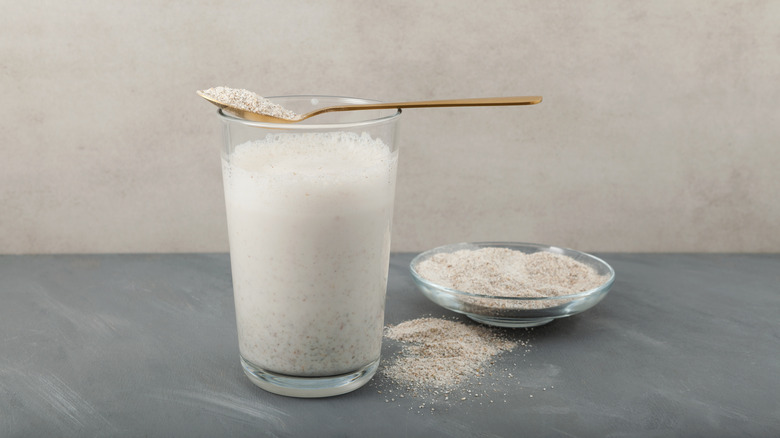This Type Of Milk Contains The Highest Amount Of Protein Per Serving
Taking care of our bodies can be a chore; there is a lot we have to remember to do for ourselves. We need to eat several different fruits and veggies in a day, drink at least 4-6 cups of water, and get enough vitamin A, B, C, and so forth down the alphabet. That's a lot to juggle. On top of all that, we also need protein. According to the Mayo Clinic, between 10% and 35% of your daily calories should come from protein. For context, that is 200-700 calories of a typical 2,000-calories-a-day diet. Without a consistent amount of protein in our food, muscles can begin to deteriorate, we may develop a fatty liver, suffer from skin and hair problems, or it could even stunt our growth, warns Healthline.
Luckily, we can get protein from a variety of sources — beef, poultry, fish, pork, fruit, veggies, beans, and even milk. Milk, from both plant and animal sources, is an easy way to get your recommended amount of nutrients throughout the day, but what kind of milk has the most protein?
It's complicated
According to the SFGate, the ranking for protein in milk goes as follows: Sheep milk — 5.98g per 100g serving, cow or goat milk — 3.56g per 100g serving, and then soy milk – 3.27g of per 100g serving. As you can see, sheep milk far outpaces the others when it comes to protein, but obtaining sheep's milk is difficult. Due to lack of popularity, and the inherent difficulty of raising sheep versus other milk-producing animals, it is rare to find sheep milk anywhere in stores (via Slate). Cow and goat milk is far more popular, and so are their cheeses, making them the highest protein milks you are likely going to have access to.
But, this is only looking at hydrated liquid milk, what about dry (powdered) milk? Well, whole dry milk contains 26.32g protein per 100g serving, and nonfat dry milk comes out with a whopping 36.16g protein per 100g serving. This indicates that dried milk easily beats all other milk in terms of protein, and the fat-reduced milk (either dried or liquid) has the most protein.
Powdered has more power!
"Milk Powder" by K.N. Pearce explains that when you reduce a liquid into a powder, you concentrate its contents. When the fat and water in liquid milk evaporate, the protein will increase in concentration, which is why dry whole milk is significantly higher in protein than the liquid form. The same thing occurs when the fat from milk is removed, the same amount of protein exists even though there are fewer grams of milk total. So, if you are looking to bulk up on protein, look into buying powdered milk to add to your protein shakes!
If you are vegan, lactose intolerant, or just looking for more environmentally friendly milk to get your protein from, soy is your best bet. Whole milk and soy have almost the same amount of protein only have a 0.29g difference per 100g serving and no other plant-based milk comes close to rivaling that amount of protein (via SFGate).


